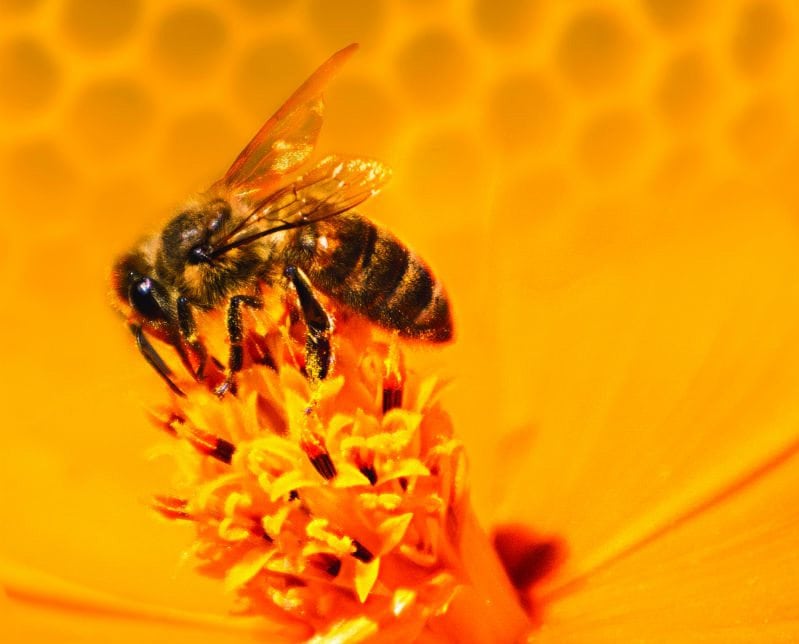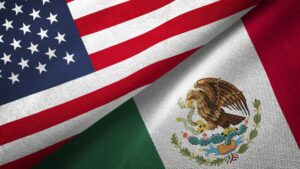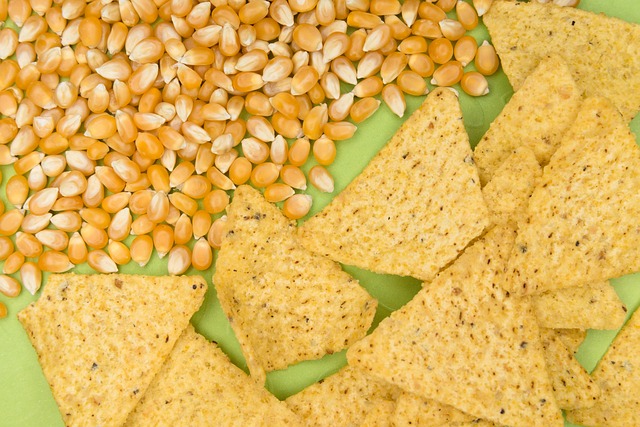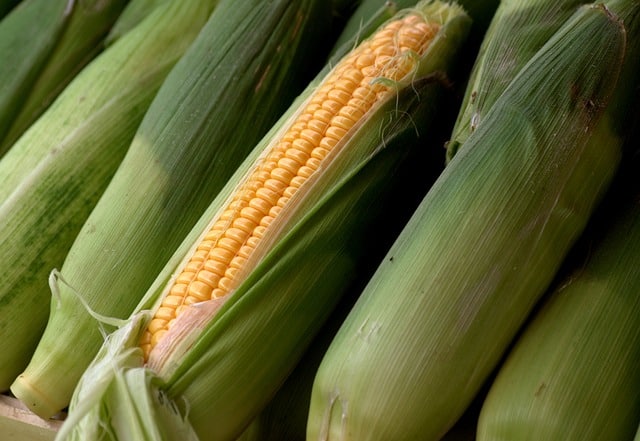European growers and industry are feeling the sting of the two-year restriction on the use of neonicotinoids.
Almost a year after the European Commission enacted a ban on the use of neonicotinoid-based seed treatments, growers and industry in the European Union are experiencing serious consequences as a result.
Guy Smith, vice-president of the National Farmers’ Union (NFU) and a grower himself, says the ramifications of the ban for both growers and pollinators may be worse than was originally predicted.
“The weather has turned hot and dry, and that has encouraged activity with flea beetle, which is the main pest the neonic pesticides are designed to combat,” he says. “Without the protection those products offer, many growers are suffering. It’s early days, but we’re getting reports of farmers losing half their crops.”
In February 2013, the European Food Safety Agency (EFSA) identified a number of risks posed to bees by three neonicotinoid insecticides. The European Commission asked the agency to assess the risks associated with the use of clothianidin, imidacloprid and thiamethoxam as seed treatments or as granules.
“The ban has had some negative economic effects on the seed sector, and we expect this to get worse as we move into 2015.”
Essentially, EFSA was to assess each seed treatment on its acute and chronic effects on bee colony survival and development; its effects on bee larvae and bee behaviour; and the risks posed by sub-lethal doses of the three substances. Despite that in some cases EFSA was unable to finalize its assessments due to a lack of available data, the European Commission enacted restrictions on the use of neonicotinoids beginning Dec. 1, 2013 for several bee-attractive crops and included a two-year period to further review conditions for registration of neonicotinoids in these crops.
The European Seed Association (ESA) also says the ban has had a number of negative effects for industry. “This ban means a big gap in the area of insecticide seed treatment in many key crops, such as oilseed rape and maize,” says Ana Silva, ESA communications manager. “The ban has had some negative economic effects on the seed sector, and we expect this to get worse as we move into 2015.”
Savina La Scalea, Syngenta AG media relations manager, adds that the suspension has done nothing to address diseases, viruses and loss of nutrition for pollinators, “which even the European Commission acknowledges as the biggest threat to pollinators.”
Syngenta AG has seen a negative impact to its bottom line due to reduced sales of Cruiser, but it stresses that European farmers, who have been denied access to innovative and sustainable crop protection technologies, have felt a more significant impact. “Growers now have to use alternative products, many of which are older and less effective,” says La Scalea.
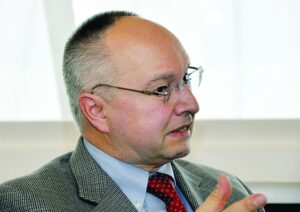
Bayer CropScience can testify to that as well. According to Martin Gruss, head of SeedGrowth products for Bayer, “There are several products in our portfolio that we can’t offer to growers anymore, and of course, creating new products doesn’t happen overnight. For the growers, that’s a big disadvantage. There’s no insecticide solution available right now for oilseed rape.”
Gruss adds that Bayer is able to offer most European growers Sonido, a seed treatment that protects corn crops against wireworms.
Sonido, however, doesn’t offer the same protections as restricted seed treatments, Gruss notes. “It helps guard against wireworm attacks, but should be accompanied by a microgranule in cases of heavy attacks or against corn rootworm.” But microgranules are more cumbersome for growers to use, he adds.
Many growers, though, are unable to use microgranules at all. According to France-based Thierry Gestat, European market segment manager for Bayer CropScience, a lot of growers now use planters that are not equipped with the appropriate applicator. The same problem exists for growers who farm oilseed rape and must revert to spray application and more frequent visual crop inspection in autumn, while they are already busy with other work. “To go back to the old way of farming oilseed rape is difficult. It’s usually possible, but far more difficult depending on pest pressure,” he says.
“There’s no bee apocalypse happening, and the link to neonics is very thin.”
Billions at Stake
Since the ban came into effect, German-based Humboldt Forum for Food and Agriculture (HFFA) published the first comprehensive review of the value of neonicotinoid treated seeds.
Assessing the socio-economic and environmental contributions of neonicotinoid seed treatments in the EU, across the major crops and in key countries, the study found that “if neonicotinoid seed treatments were no longer available in Europe, there would be a significant reduction of food production, dramatically altering the commodities trade balance.” The HFFA study shows:
- Neonicotinoid seed treatments contribute more than €2 billion annually to EU commodity crop revenues.
- The value of neonicotinoid treated seed to growers versus not using pesticides at all exceeds €4 billion per year.
- If the ban continues over a five-year period, the EU could lose up to €17 billion and face significant pest pressure.
- If the technology remains under a ban, EU farmer income would decrease an average of five per cent.
- At least 50,000 farm jobs would also be lost across the EU.
ESA’s Silva says it is difficult to grasp all of the effects at this time, but the modeling conducted by the HFFA study shows the economic benefits of neonicotinoid-treated seeds.
“There is an increasing body of evidence supporting the view that neonicotinoid-treated seed is one of the most effective and targeted forms of crop protection technology available,” La Scalea says.
The HFFA study also found that, “if used correctly, neonicotinoid seed treatments can be used safely for all major crops across Europe. The crop protection industry is engaging in active stewardship to ensure that this is the case. In addition, the seed, seed treatment and crop protection industries have recently implemented quality assurance and user information measures to further improve safe use.”
Time Restriction Reversal Unlikely
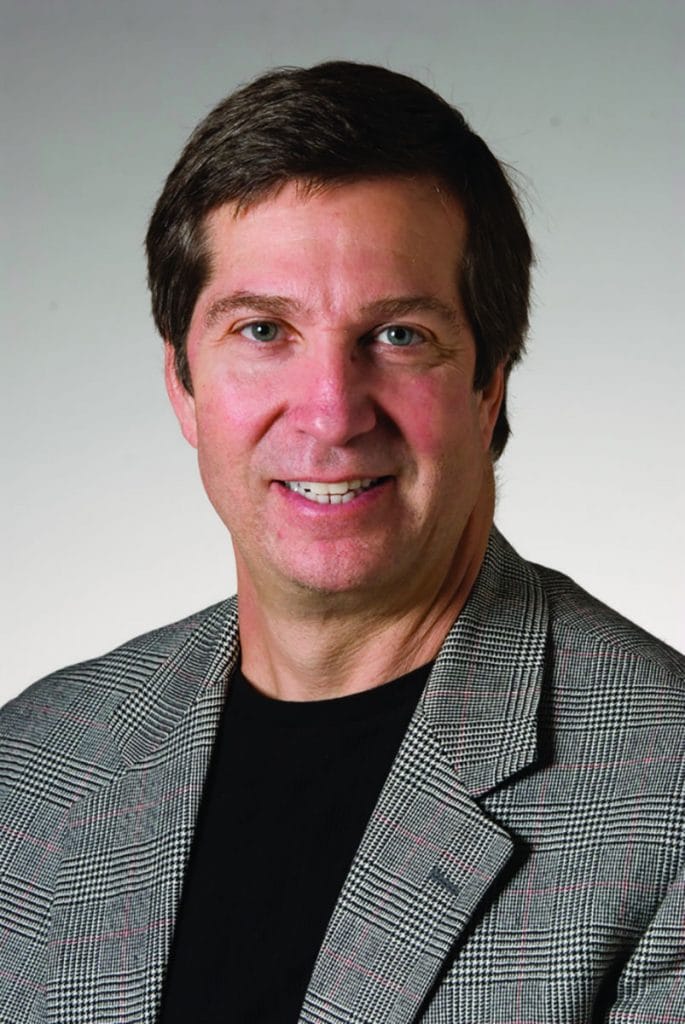
than neonicotinoids.
Despite the HFFA study’s findings, those like Jon Entine say studies like it don’t carry enough weight to convince the EU to reverse its ban. Entine, an American author and journalist and former Emmy-winning producer for both NBC and ABC News, is founder and director of the Genetic Literacy Project, which promotes public awareness of genetics and science literacy.
“I think there’s zero chance they’ll do anything to reverse the ban before the two years are up, no matter how dire the situation is,” he says. “It’s hard to un-ring a bell. It would be a long shot for them to change their minds, unless there was some credible agency — a European one, not a U.S. one — that came out with some kind of vindicating report, a whistle-clean study that puts the issue to rest. Politicians are politicians, and this is a political issue as much as it is a science issue.”
The NFU’s Smith agrees. “We’re keen to make regulators aware that if they take these tools away, farmers may lose crops, and that has an economic impact for the wider society. We can only try to lobby to the best effect, but with the Byzantine nature of European politics, you can never be sure.”
Entine has written extensively on the EU neonics ban, and says the hype surrounding neonics is unlikely to die off in the near future. “There’s no bee apocalypse happening, and the link to neonics is very thin. The problem is there is a lot of indecision and murky data out there, combined with studies that in a lot of cases were poorly executed that link bee deaths to neonics.”
Entine notes that growers are now forced to use pesticides that are “demonstrably worse” for the environment than neonicotinoids. “It’s what happens when advocacy groups win. The environment and public health doesn’t always win. It’s sad, but that’s how politics distorts science.”
With stricter authorisation criteria and a hazard-based assessment approach, ESA fears that even more products will disappear or not make it to market with the ban in effect. As a result, ESA has developed the European Seed Treatment Assurance Scheme (ESTA) to ensure quality application of plant protection products to the seed during the treatment process, as well as the proper handling and safe use of quality treated seed.
Only ESTA-certified treatment facilities can use the ESTA logo on their products to document compliance and facilitate the free movement of treated seed throughout the EU.
Syngenta has also implemented its own stewardship solutions. For more than a decade, Operation Pollinator has been placing pollinator habitats and nutrition back into farm landscapes. “Our biggest disappointment is that farmers will continue to be denied access to this crop protection technology, while nothing is done to improve bee health,” La Scalea says.
Bayer is trying its best to offer solutions as well by developing such technologies as SweepAir, a new air-cleaning technology for drillers that helps control dust at planting.
“We are providing support for stewardship measures for further use of dust-reducing technologies, because we want the product applied to the seed to stay on the seed,” Gruss adds.


